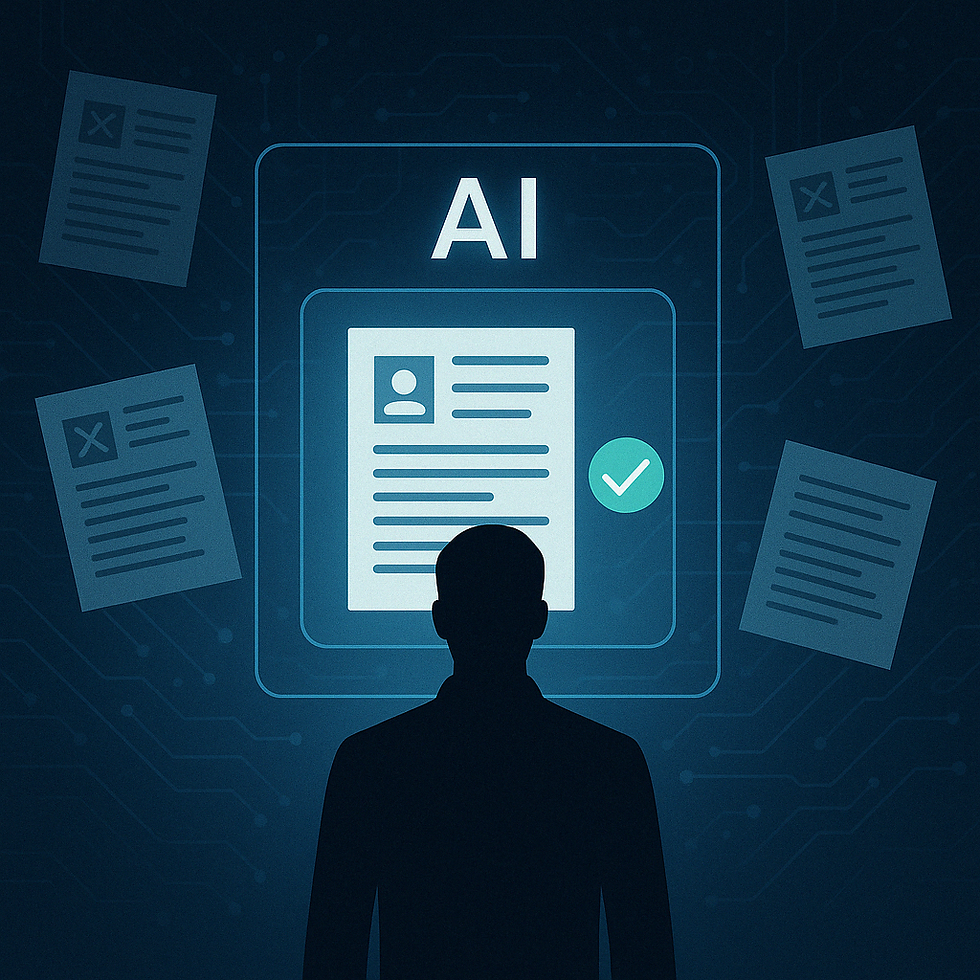AI Ethics and Responsibility: Who Takes the Blame When AI Gets It Wrong?
- Chris Howell
- Mar 29
- 4 min read
The Problem: When AI Hallucinates, Real People Suffer
Imagine searching your name online and discovering an AI chatbot falsely claiming you committed a crime. This recently happened to Arve Hjalmar Holmen, a Norwegian man who asked ChatGPT about himself—only to find a fabricated story that falsely accused him of murdering his own children.
According to a BBC report, Holmen was given false information when he searched, "Who is Arve Hjalmar Holmen?" The response falsely stated that he was a Norwegian man who had been jailed for 21 years for the murder of his two sons. Not only was this completely untrue, but the AI-generated response even included fabricated details such as the ages of the supposed victims and the location of the incident. The hallucinated response was presented confidently, making it appear credible.
This wasn’t a case of hacking or misinformation spreading through social media. It was AI, confidently generating falsehoods and presenting them as fact.
This is an AI hallucination: when artificial intelligence fabricates information in a way that sounds plausible but is completely untrue. In most cases, hallucinations are harmless—misattributed quotes, incorrect dates, or mixed-up references. But when an AI falsely accuses someone of a crime, the stakes become much higher.
This raises the fundamental question: Who is responsible when AI gets it wrong?
Hallucination in Action: Recent High-Profile Cases
Holmen's experience is far from isolated. Earlier this year, Apple suspended its Apple Intelligence news summary tool in the UK after it hallucinated false headlines and presented them as real news. Google's AI Gemini also made headlines last year for suggesting bizarre solutions, such as sticking cheese to pizza with glue and recommending humans consume one rock per day—both utterly false yet confidently delivered.

The Consequences: Misinformation, Defamation, and Distrust
AI-generated errors can have real-world consequences, including:
Defamation & Reputation Damage – AI misinformation can harm individuals, businesses, and public figures. False accusations, fake news, or misleading content can spread rapidly.
Legal & Ethical Challenges – Laws around AI-generated content are still evolving. If AI generates damaging falsehoods, should the responsibility lie with the user, the developer, or the company that built it?
Loss of Trust in AI – If users cannot trust AI outputs, adoption slows, and businesses risk losing credibility. AI must be reliable to be useful.
Holmen expressed his fear that people may assume there is truth to the AI-generated claim. "Some think that there is no smoke without fire—the fact that someone could read this output and believe it is true is what scares me the most," he told the BBC. His case highlights a major risk: once misinformation is generated, it can be difficult to correct.
The problem is that AI, particularly large language models (LLMs) like ChatGPT, does not understand truth the way humans do. It generates responses based on probabilities, not facts. The more we rely on AI for research, legal insights, or business decisions, the greater the risk of misinformation causing harm.
The Solution: Responsible AI Development and Smarter AI Use
We can’t afford to let AI operate in a moral vacuum. The key to mitigating AI-related harm lies in responsibility at multiple levels—from AI developers and businesses to individual users and policymakers.
1. AI Developers: Build Better Guardrails
AI models must be trained to prioritize accuracy over fluency, especially in high-risk areas like law, medicine, and finance.
Developers need to implement fact-checking mechanisms, reinforcing AI’s ability to say "I don’t know" instead of hallucinating.
More transparency is needed around how AI models are trained, tested, and validated.
AI models are improving to combat hallucinations. Newer iterations, like GPT-4.5, have enhanced accuracy, improved fact-checking, and are better at rejecting false premises. However, no model is perfect, and vigilance is still required.
2. Businesses: Educate Users & Apply AI Wisely
Companies integrating AI into their services must train employees to critically evaluate AI outputs rather than blindly trusting them.
AI-generated content should always be reviewed before being published or acted upon, particularly in sensitive areas.
Clear disclaimers should be in place, reminding users that AI-generated text is not inherently factual.
3. AI Users: Verify, Verify, Verify
Always cross-check AI-generated responses with credible sources. If AI provides a surprising or highly specific claim, don’t assume it’s accurate.
Use AI as an assistant, not an authority—let it generate ideas, but take responsibility for validating the content.
Report inaccuracies when possible. Most AI tools have feedback mechanisms that allow users to flag misinformation.
4. Governments & Policymakers: Set Ethical Standards
AI regulation is still catching up, but policymakers should focus on legal liability—who is accountable when AI generates harmful falsehoods?
Transparency laws could require AI developers to disclose limitations, biases, and risks upfront.
Ethical AI guidelines should be integrated into corporate governance, especially in industries where AI decisions have high stakes.
How Mercia AI Champions Responsible AI Use
At Mercia AI, we believe AI should be a force for empowerment, not harm. Our approach to responsible AI includes:
AI Ethics and Responsibility Workshop – Helping individuals and teams explore the real-world risks of AI misuse and how to mitigate them.
AI Readiness Consultation – Helping organizations implement AI responsibly, ensuring they have the right checks and balances.
Custom AI Strategy Development – Crafting AI solutions tailored to business needs while minimizing risks like hallucinations and misinformation.
The key takeaway? AI is a powerful tool, but it is not infallible. The responsibility for ethical AI use is shared across developers, businesses, and users alike.
Final Thought: Can AI Be Trustworthy?
AI is evolving fast, and with it, the debate over trust, accountability, and ethics continues to grow. The question is not just "Can we trust AI?", but "How can we ensure AI is built and used responsibly?"
By demanding higher ethical standards and taking responsibility for AI interactions, we can shape an AI-driven future that prioritizes accuracy, fairness, and trust.



Comentarios